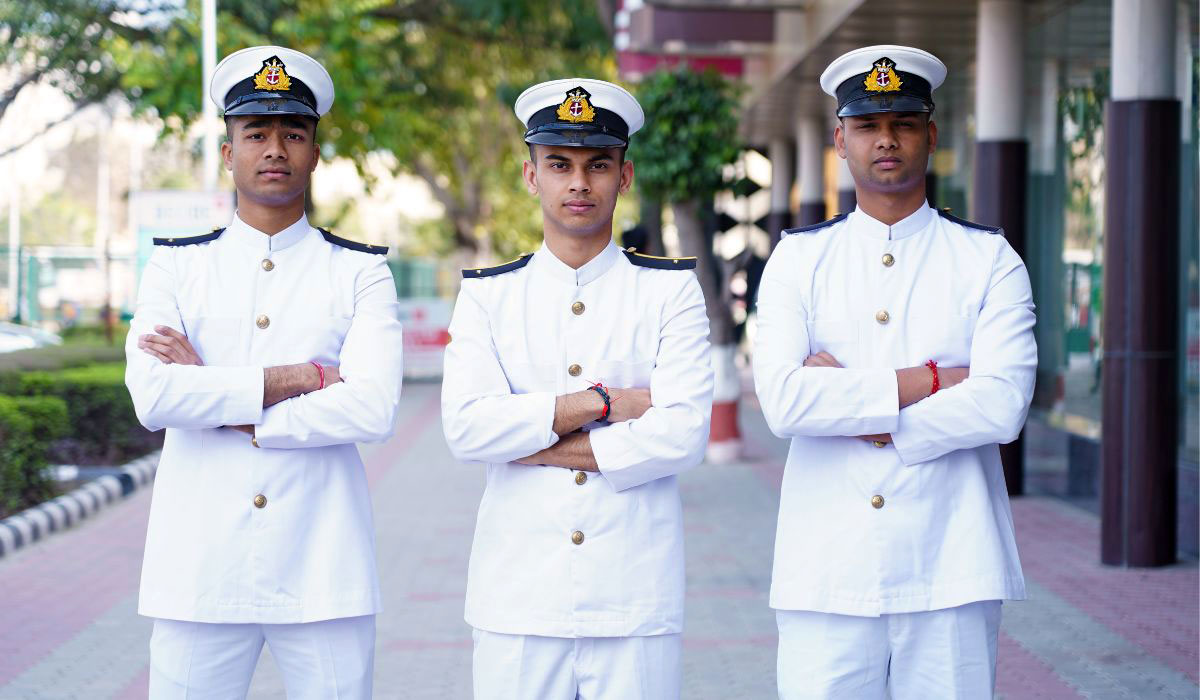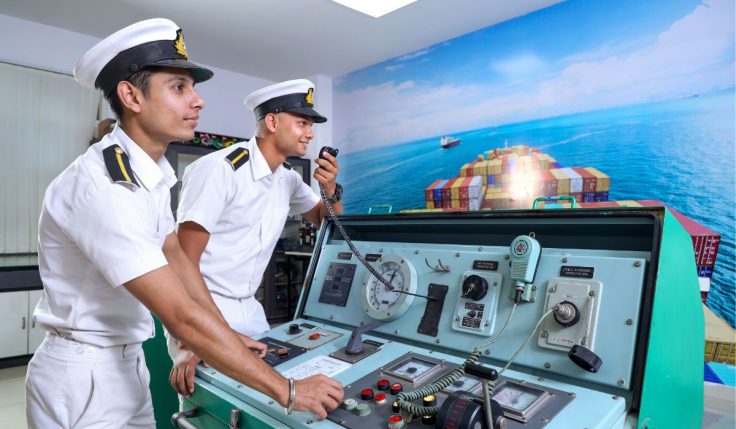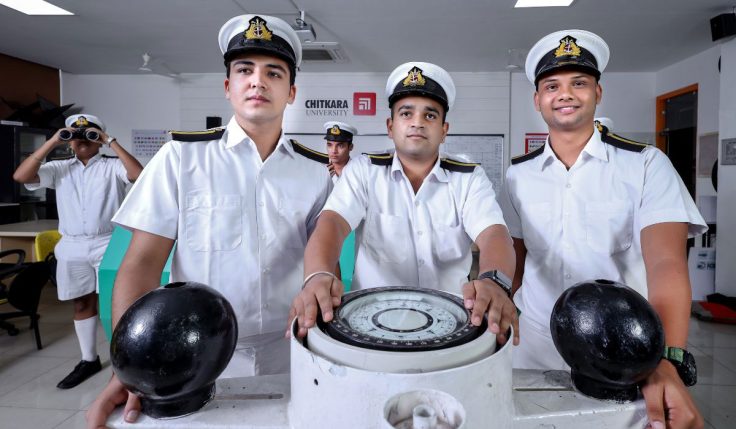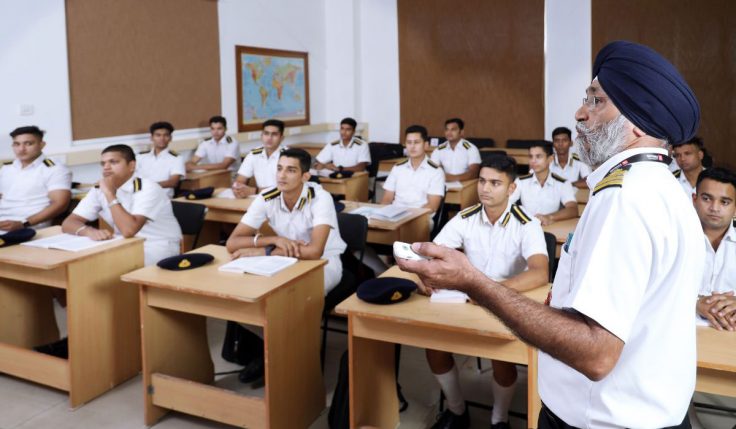Maritime operations are the most important for global trade and transportation, but the fact is that they do not come without environmental challenges. The oceans often face significant threats because of human activities that happen in the sea.
To ensure that trade is not disrupted, it is necessary to navigate environmental challenges in maritime operations. Hiring well-trained maritime officers who can take charge is crucial for timely solving of these challenges.
Let’s see some of the common environmental challenges associated with maritime operations and the efforts made to mitigate their impact.
Oil Spills: Oil spills have been a common cause of concern as one of the environmental challenges in maritime operations. This problem looms large over maritime activities, which pose a severe threat to marine ecosystems.
There are accidental spills during the fuel transfer or sometimes collisions that can have devastating consequences for marine life, habitats, and coastal communities. Stringent regulations and technological innovations in the spill response become important for addressing this environmental problem.
Ballast Water Exchange Problems: When we talk about the environmental challenges associated with maritime operations, the ballast water woes have been damaging the water ecosystem severely. Ballast water is important for maintaining a ship’s stability, and it has many unintended consequences when discharged into different ecosystems.
The transfer of invasive species through ballast water can often pose a significant environmental risk. International conventions such as the Ballast Water Management Convention are aimed at curbing the problem of setting standards for ballast water treatment systems.
Also Read: DNS vs BSc Nautical Science: Which Degree is Better for Maritime Careers?
Air Pollution on the High Seas: Ship emissions often contribute to air pollution while releasing pollutants such as sulphur oxides (SOx), particulate matter, and nitrogen oxides (NOx). This ends up affecting the air quality and has severe repercussions for climate change.
The International Maritime Organization has implemented regulations for limiting sulphur content in marine fuels and is also exploring ways to reduce greenhouse gas emissions from the ships. Adopting eco-friendly technologies, such as cleaner fuels, exhaust gas cleaning systems, and improved engine designs, can help reduce these harmful emissions and improve air quality.
Silent Waves: The waves lead to noise pollution from maritime activities. The noise pollution from maritime activities includes ship traffic, underwater construction, and sonar use that can disrupt marine ecosystems.
The noise pollution created by silent waves can interfere with the communication and navigation of marine species, leading to negative impacts on their behaviour and survival. Mitigation strategies often include developing quieter shop designs and establishing marine protected areas.
The impact of shipping on climate change cannot be ignored: Greenhouse gas emissions created by ships, specifically carbon dioxide, can impact the earth’s climate.
What’s more, the maritime industry is exploring many different alternative fuels, including liquefied natural gas (LNG) and hydrogen, along with improving energy efficiency to reduce the carbon footprint.
Importance of Adopting Eco-Friendly Practices
The maritime industry is increasingly adopting innovative strategies for navigating challenges associated with the environment. Let’s see the importance of adopting eco-friendly practices for ensuring sustainability in the maritime sector.
Embracing Clean Energy: One of the most important ways to deal with environmental challenges is the adoption of clean energy sources. The maritime industry is exploring and using alternative fuels, including liquefied natural gas, hydrogen, and biofuels.
Clean energy alternatives can significantly contribute towards reducing greenhouse gas emissions and also contribute to creating a more sustainable future for maritime operations. Transitioning to alternative fuels like liquefied natural gas (LNG) or exploring renewable energy sources, such as wind or solar power, can help reduce carbon dioxide (CO2) emissions and combat climate change.
Ship Designs: Innovative ship designs play an important role in reducing the overall environmental impact. From hull coatings that can effectively reduce friction and fuel consumption to streamlined ship designs that can enhance fuel efficiency, developments in naval architecture have promoted sustainability.
It is very important to invest in modern and eco-friendly vessels, as that plays an important role in navigating the seas with added responsibility.
Route Planning: Streamlined route planning does not just save time and fuel but also helps reduce the environmental footprint of maritime operations.
It is important to use advanced technology and data analytics so that ship operators can choose routes that avoid sensitive marine areas. This helps reduce the risk of accidents and limits the impact on marine ecosystems.
Regulatory Compliances: Organisations such as the International Maritime Organisation have implemented regulations for addressing environmental concerns. There must be strict adherence to these regulations.
Following compliance includes issues such as ballast water management, sulphur emissions, and greenhouse gas reduction, which are extremely important. Compliance also ensures a standardised approach to environmental protection across the maritime industry.
Technological Investments: Technology is an effective way to attain the quest for sustainable maritime operations. From emission monitoring systems to waste treatment technologies, investing in advanced solutions helps reduce the overall environmental footprint of the industry.
Using smart technologies also helps in enabling real-time data analysis while enhancing the efficiency of maritime operations and minimising the negative impacts.
Maritime Education and Training: Fostering a culture of environmental responsibility requires education and training at all levels of the maritime industry. The crew members and ship operators, along with the industry stakeholders, must be aware of the environmental challenges. The pursuit of eco-friendly practices stimulates innovation and research in the maritime industry. Investing in new technologies and sustainable solutions fosters the development of cleaner and more efficient transportation methods, driving the industry towards a greener and more sustainable future.
Why Study B.Sc in Nautical Science to Navigate Challenges in Maritime Operations?
The study program for the B.Sc. in Nautical Science for Maritime Industry deals with cargo operations, navigation, maintenance of merchant navy ships, and legal and commercial matters pertaining to the shipping business. The deck officers look after safety related to lifesaving and firefighting by navigating the vessels across the oceans and over the coast.
At the ports, all cargo operations are either looked after by these professionals or carried out by them under direct supervision. Students completing a B.Sc. in Nautical Science become shipboard officers through a unique curriculum that helps build a reliable knowledge base.
When pursuing a B.Sc. in Nautical Science for the Maritime Industry, students also receive training in navigating through the environmental challenges in maritime operations. Students are made to learn the importance of adopting clean energy and advanced technologies and ensuring a commitment to regulatory compliance when charting a course that respects the delicate balance of our marine ecosystems.
While maritime operations are indispensable for global trade, addressing their environmental impact is a pressing concern. International collaboration, stringent regulations, and technological innovations are crucial in mitigating these challenges. As we sail into the future, sustainable practices and responsible shipping will be the compass guiding us towards a healthier and more resilient marine environment.
Prioritising eco-friendly practices in maritime operations is essential for addressing environmental challenges, meeting regulatory requirements, and ensuring the long-term viability of the industry. It requires collaboration among stakeholders, including governments, industry players, and the public, to implement and support sustainable solutions for the benefit of both the maritime sector and the planet.






